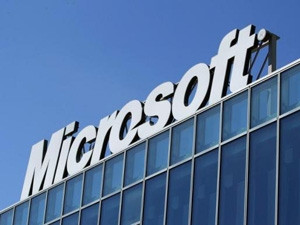
Microsoft's latest moves to put its tools on other devices and open its operating system to developers is a wake-up call for the software maker and a boon for local developers.
Reuters recently reported Microsoft will make its personal assistant, Cortana, available as an app for use on tablets and phones running iOS and Android. Cortana has been running on Windows phones for a year, and will be available on desktops when Windows 10 lands.
This follows its move, last April, to radically transform itself by giving away Windows to makers of smartphones and small tablets for consumers, which came after its announcement of Office for iPads. It has also opened Windows to developers and hardware hackers without charging, so they can build apps and platforms, making tiles optional instead of obligatory.
On Monday night, CEO Satya Nadella announced a suite of products designed to enable business, including Windows 10 for Internet of things, business intelligence tools and Skype for business, which is now globally available for technical preview.
Skype for business (formerly Microsoft Lync) is a communications and collaboration platform that brings together an experience inspired by Skype with enterprise-grade security, compliance and control. Features include instant messaging, voice and video calls, and online meetings, and it is built into Microsoft Office.
Microsoft is also offering free upgrades to Windows 10 to all Windows users in China ? regardless of whether they are running genuine copies of the software ? in a bid to get its software onto PCs.
Sensible move
World Wide Worx MD Arthur Goldstuck notes Microsoft has been "fairly pragmatic" in making a distinction between its operating system and its applications. "If it's most common application, Office, is cross-platform, it would make sense for its apps also to become cross-platform."
Goldstuck adds Microsoft clearly foresees an environment in which it will be more important for its applications to be accommodated on any device and platform, than for it to be in total control of all platforms that accommodate its applications.
"There's a crucial difference between those two concepts, in that the former acknowledges we no longer function in a Windows-dominated world, which is what the latter would imply in Microsoft's thinking. Some may argue it is Microsoft admitting defeat in the operating system wars, but it is more a case of the corporation maturing and outgrowing playground-style turf wars."
ICT commentator Adrian Schofield adds Microsoft has understood its future does not lie in selling licences for end-users. "Apple and Google have shown that if you have a good device and operating system as the platform, the revenue (and share value) comes from the applications that are available on the platform - and that the data must be interchangeable between users on other platforms."
Schofield notes Microsoft will encourage brand loyalty by giving its flagship applications away. "Brand loyalty is the essential ingredient - refer to the users who are Apple fanatics or firm believers in Android."
In addition, Microsoft is set to follow in others' footsteps and buy smaller companies that have a good product, and integrate the intellectual property into the Microsoft environment, says Schofield. "I believe they will concentrate on the value of the brand and move away from the less valued product names, so we will lose Windows, Outlook, Bing and Internet Explorer, for example."
Microsoft notes there are many examples of companies competing and partnering at the same time. "At the end of the day, it is about doing what makes sense and is best for our customers. Microsoft will continue to focus on delivering great, unique experience with Windows."
This shift, Schofield says, creates opportunities for local developers, along with other markets. "We already have a Microsoft apps factory here and I can see the potential for more developers to come into the market, with or without the direct support of the brand."
Share